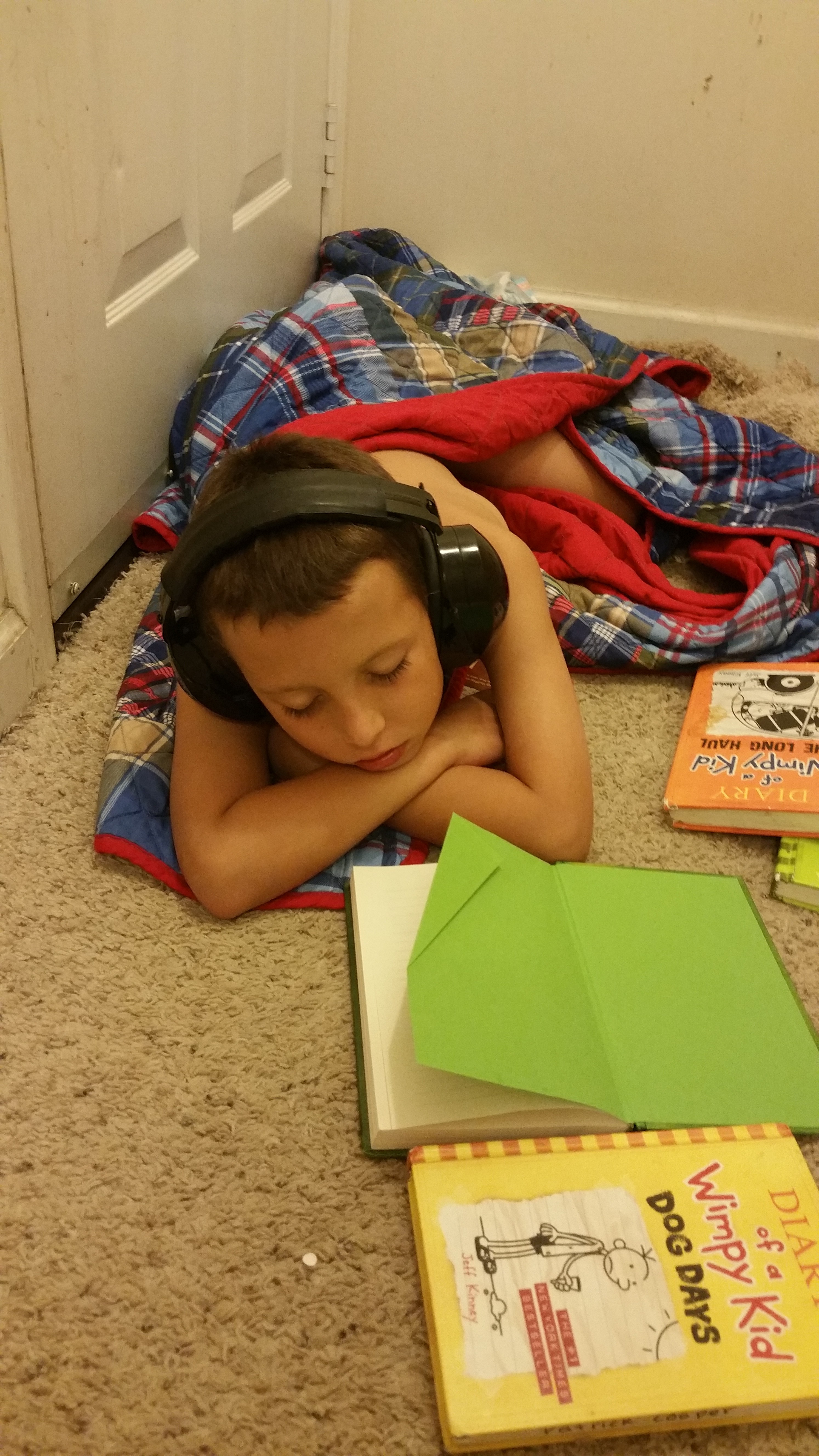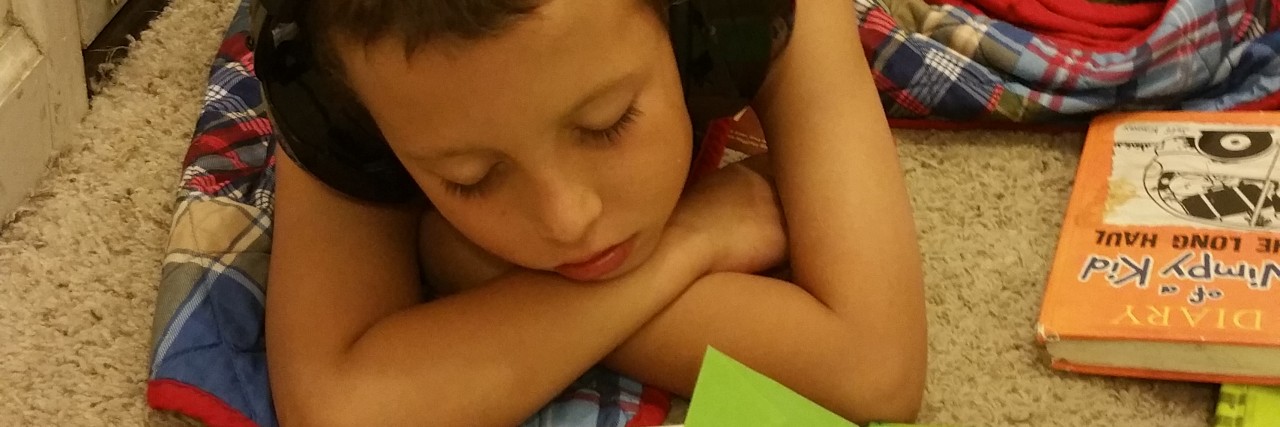As a parent, I often wonder if my children feel as if I love them unconditionally. Recently, I finished reading “Love That Boy” by Ron Fournier.* The reason I chose the book? Well, when I read the excerpt, it made me cry. Why? The last part of the excerpt resonated with me. It’s all about acceptance and unconditional love.
*Disclosure: I received this book from Blogging for Books in exchange for my honest review. All opinions expressed herein are my own.
So, I will show you the last part of the excerpt from the book — the part that made me bawl uncontrollably for a few minutes before I got myself back together again. It goes like this:
“I hope I don’t let you down, Dad.”
What kind of father raises a son to worry about embarrassing his dad? I want to tell Tyler not to worry, that he’d never let me down. That there’s nothing wrong with being different. That I actually am proud of what makes him special. But we are next in line to meet the president of the United States in a room filled with fellow strivers, and all I can think about is the real possibility that Tyler might embarrass himself. Or, God forbid, me.
As I read those last few sentences, tears welled up in my eyes. Do I demonstrate true acceptance of my son? On the outside, maybe. On the inside, I worry all the time.
I feel compelled to be honest with you. First of all, I plowed through that book like a farmer reaping a harvest. As I read, I searched within myself for answers. This book made me think about the expectations I had of my son before his birth. Additionally, it made me think about how my expectations have changed over the years. While I pride myself on fighting for my son like I’m in a cage match where only one person leaves, I wonder how good a job I do of loving him unconditionally. It’s true. As his mother, I want the best for him.
So yeah, I want my son to be the best whatever he can be. But acceptance? Acceptance proves a more difficult challenge. Acceptance means I see him for who he is and I feel pride. If I think honestly and search within myself, I know I need to work on that. It’s not that my son doesn’t make me proud. Or even that he’s not a remarkable young man. No, it’s not that. It’s me and my expectations. Eventually, I must move from expectations to acceptance. Real acceptance.
Can you love your child and still feel embarrassed when he takes his clothes off in front of people? Of course. As I cringe on the inside, on the outside, I calmly remind him of his “Good Choices Chart.” Already, he’s got one X on his chart for failure to use kind words and a quiet voice. After counting to five, a practice he’s come to know as “Mom means business,” he’s still got his swimming trunks around his ankles.
What do I worry about here? That he’s disrobed and won’t pull up his shorts or that people at the pool have begun to stare. Do I feel that he will get embarrassed or do I feel embarrassed? Truth? He could give a rat’s behind what people think right now. He’s asked to leave the pool and I’ve gone too slow. He got my attention. Now that he’s received his X and gets the reminder that one more means no prize, he’s pulled it up (and pulled it together).
Our children know we love them. I’ve asked my sons if they know I love them, and they do. They know. But do they both equally feel the same level of acceptance? I need to work on that. After all, what matters more? That my children feel love or that they feel acceptance? I think they’re both equally important. I can set expectations for him based on what I know will create problems for him as he gets older, but that doesn’t mean I need to feel embarrassed about it. At risk of shoulding all over myself, I feel that I should just have this feeling of “nothing to see here, folks,” and handle the situation in a way that models both reasonable expectations and unconditional, all-accepting love.
So, at the end of the book, Fournier gives a few tips to parents that I think deserve some mention. After all, we’re all doing the best we can, but sometimes we just need the reminder from someone else about that one thing we haven’t tried doing yet. I won’t elaborate because I want to leave you to read the book yourself. It has a good message and tells the journey of a man who, while attempting to bond with his autistic child, finds the road to acceptance. So, here are your tips (from Fournier):
1. Don’t parent for the future, but for today. Fournier suggests we create small moments and then cherish them. Next weekend, we plan to take a trip to the zoo and I plan to enjoy every small moment of our trip.
 2. Guide, don’t push. We can guide our children along the path to success, but we should not push them. If you’re pushing, not only does your child feel pressured, but you do as well. For instance, my son wanted to try karate, so I signed him up. He earned a few belts, and then he stopped wanting to go. Do I pressure him to continue, or allow him to choose his own path? Honestly, if I had pushed him to continue, we both would have felt miserable.
2. Guide, don’t push. We can guide our children along the path to success, but we should not push them. If you’re pushing, not only does your child feel pressured, but you do as well. For instance, my son wanted to try karate, so I signed him up. He earned a few belts, and then he stopped wanting to go. Do I pressure him to continue, or allow him to choose his own path? Honestly, if I had pushed him to continue, we both would have felt miserable.
3. Don’t beat yourself up. I need this reminder daily. No, I mean hourly. We all feel guilty sometimes, but Fournier states that we should not wallow in guilt. According to Madeline Levine, “anxious parents make anxious children,” so I’m glad my husband doesn’t feel nearly as anxious about, well, everything as I do. Take a deep breath. Relax. Let it go.
4. Celebrate all victories. Every time my son does something unexpected or new, we feel elated. Even the smallest of victories are still victories. My son decided today that he would compromise with his brother rather than fight with him about not doing things his way. This, my friends, is a victory. I felt so proud I shouted it out on Facebook.
5. Slow down. If you sign your child up for so many activities that you feel overwhelmed trying to keep up with them, maybe pick a couple he or she could do without. Refer to number 3 when you decide to let something go.
6. Make different cool. Guess what? Lots of people who defy societies “rules” do really cool things. What’s different about your child that makes him the good kind of special? Tell your children that not being sheeple is actually cool. While everyone else goes to the party and smokes weed, your child decides to stay home and read a book. Different. Cool.
7. Be a spouse first and a parent second. Honestly, I know my husband feels neglected and I need to work on that. Once our children leave our home, I don’t want us to feel like strangers to each other. We’ll be all we have left. That’s why it’s so important to keep the relationship alive.
8. Share. Sometimes the “bad” news is actually good news. When my son got diagnosed with autism spectrum disorder five years ago, we told everyone. They needed to know, research, and understand him. Not all autistic people are alike, but they share many characteristics, and sharing the diagnosis helps people understand. And if they don’t understand, you help them understand.
9. Fight for your children. Yes, raising a child takes a village. Sometimes that village needs a little push to step in, but you can get what you need for your child. If it takes 50 phone calls, bringing advocates to IEP meetings, or communicating that you accept no less than the absolute best from whomever cares for your child, it’s worth it. Never, ever give up on your child.
10. Channel your inner Aspie/Autism. There is so much to value about people on the spectrum. Maybe your child, like mine, lacks the ability to lie. Or, maybe your child knows more about dinosaurs than anyone else. That’s so cool! Not only that, but when you’re sad, your child may not understand why, but he or she picks up on it. I’ve mentioned before how my son responds to my feelings more than anyone else. He has so much empathy that I’m certain he feels my feelings on a deeper level. I can identify with that. I do the same thing (I call myself an emotion sponge). Think about all the good qualities that your child has that not only makes him or her different, but awesome.
As I reflect on my parenting and my thoughts while caring for my two children this summer, I feel that I still have a lot to work on, but I’m getting there. Acceptance and getting to know the awesomeness of your child can present some challenges, but it’s well worth it.
Begin your journey to acceptance. Tell me what’s awesome about your child.

